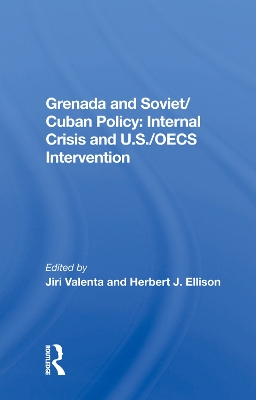The turmoil in the Caribbean and Central America does not have a single cause; it results from both indigenous factors and outside intervention. Some liberals see revolution as the result of poverty and injustice and ignore the East-West security dimensions of the problem, the role of Leninist ideology, and the actions of the Soviet Union and its allies. Some conservatives point to the evil machinations of the Kremlin and its proxies to explain revolution and ignore the economic, social, and political roots of discontent. In reality, however, causes of revolution are both internal and external. This volume is a collection from a conference at the Naval Postgraduate School in Monterey, California on August 15-18, 1984 and tells much more about Soviet/Cuban strategy and tactics in the Third World than was known before. It also provides a useful corollary to recommendations put forward by the Bipartisan Commission. For all of these reasons, this work should be read not only by scholars, but also by policymakers, analysts, and all discerning readers who care about America's role in the world. The purposes of the meeting were (1) to generate scholarly examination of documents captured during the U.S.fEast Caribbean forces' intervention in Grenada in October 1983, so as to determine the causes of the bloody coup in Grenada and the impact of the intervention on Soviet/Cuban politics in the Caribbean Basin and other areas of the Third World; and (2), to examine in bipartisan fashion U.S. options for countering Soviet/Cuban adventurism. Both objectives were met
- ISBN10 0367006278
- ISBN13 9780367006273
- Publish Date 18 September 2018
- Publish Status Active
- Publish Country GB
- Publisher Taylor & Francis Ltd
- Imprint Routledge
- Format Hardcover
- Pages 552
- Language English
